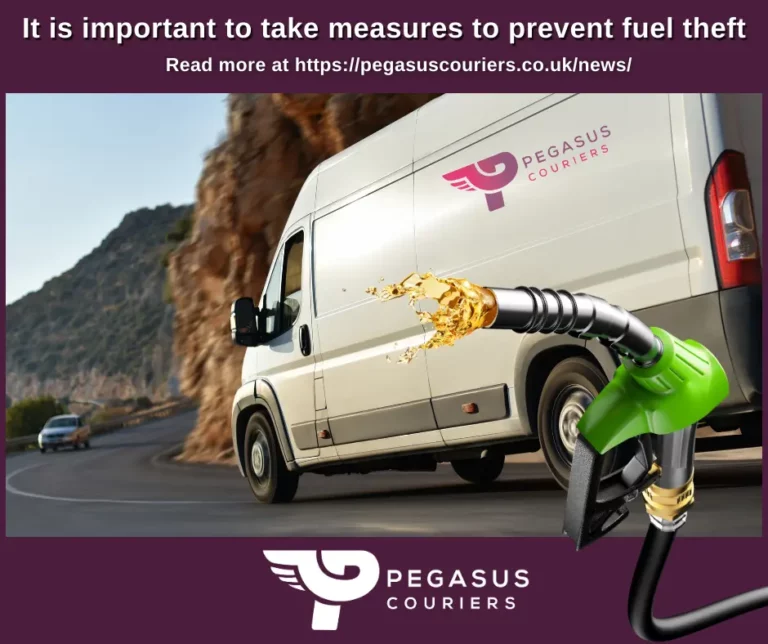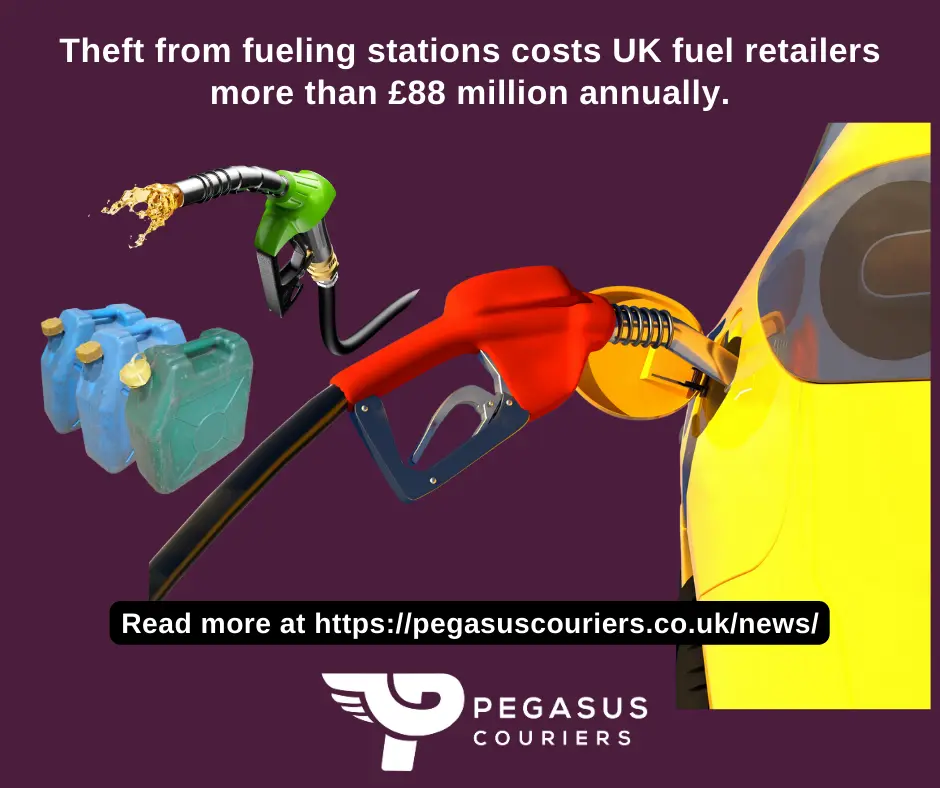Fuel Theft Spike Is Bad For Business

Martin Smith
Pegasus Couriers MD

As fuel prices increase, so does fuel theft, posing a threat to businesses operating profits. To curb skyrocketing theft, many companies are introducing stricter control measures. Here I discuss the impact on businesses and highlight the consequences for the end consumer.
Fuel Theft and Its Far-Reaching Impact
Fuel theft is a big problem worldwide, costing businesses millions every year. This leads to money loss and causes environmental issues like leaks, spills, and damage. Local businesses suffer from lost profits, which can eventually raise consumer prices. Industries like logistics, farming, and construction are hit the hardest. Communities feel the impact too, as businesses raise prices to make up for the losses.
Fuel theft is a major problem globally, costing businesses millions each year. This results in financial losses and environmental damage, such as leaks and spills. Local businesses suffer from lost profits, which can lead to higher consumer prices. Industries like logistics, farming, and construction are hit hardest. Communities are also affected as businesses raise prices to offset the losses.
Common fuel theft types
In the UK – and globally – there are several types of fuel theft. The more common thefts include:
- Siphoning fuel from the tank
- Cutting the fuel line of a vehicle
- Filling up cans of petrol on a business card for re-sale
However, fuel card fraud is also an increasing problem, with criminals taking advantage of vulnerable systems resulting in the business being out of pocket.
Worryingly, a survey by Shell in the USA found that two out of five employees witnessed a driver committing some type of fraud.

Did you know?
Summary of interesting fuel theft incidents:
- In February 2023, a Manchester man was convicted of buying thousands of pounds of drugs on his company fuel card. He used the fuel card over 100 times to buy £8,000 worth of petrol in just over a month. The fuel was then exchanged for drugs.
- In Scotland, 800 litres of diesel was stolen from one site near Luthermuir. This was followed by another theft of 200 litres near Ellon.
- In March 2023, a fuel thief was jailed for 22 weeks and disqualified from driving for two years.
- A haulage firm had £24,000 of diesel was stolen directly from their warehouse in 2022. In the process, storage tanks were damaged. The perpetrators left diesel leaking on the premises — causing additional loss.
- Two workers used fuel cards to fill up their vehicles. They were found guilty and ordered to pay back the money and other charges as well as given community service.
- The military recently lost £250K of diesel in one of the UK’s largest fuel heists.
- A syndicate was nabbed in 2022 after allegedly stealing about £1 million in fuel after targeting industrial units in Wrexham, Flintshire and Anglese. The thieves used pumps to syphon fuel from storage tanks into large intermediate bulk containers (IBCs)
- Last year a council lorry driver in South Kesteven District Council (SKDC) was convicted of syphoning fuel from the tank and selling it for profit. He was given an eight-month sentence, suspended for 18 months, and ordered to do 200 hours of unpaid work and pay back £42,000 worth of diesel.
Increase in UK fuel thefts
British Oil Security Syndicate (BOSS) estimates that each year the UK police spend more than 800,000 hours dealing with fuel theft incidents. They estimate that theft from fueling stations, called forecourt crime, costs UK fuel retailers more than £88 million annually.
Insurer NFU Mutual likened farmers’ fuel tanks to liquid gold. They also stated that fuel theft claims doubled in 2022.
In March 2022, police said there had been an 89% rise in fuel thefts since the beginning of the year.
Various HGV owners called fuel theft a “really big problem”. Fuel theft is also linked to other crimes, such as vehicle theft, fraud, etc.
Indirect costs related to the crime include lost productivity due to disrupted operations, increased security measures to prevent future thefts, and the cost of investigating and prosecuting those responsible.
What happens to the stolen fuel?
When fuel is sold on the black market, it’s usually at a much lower price than what you’d pay at a regular gas station. But remember, someone has to cover the cost of that fuel. The business might end up increasing prices for everyone to make up for the losses.
They could also try to claim insurance if they’re covered. If the culprits get caught, the courts can make them pay back the money.
So, buying cheap fuel illegally might have consequences that affect everyone’s wallet.
Does the time fit the crime?
Driving off without paying a fuel bill can land the culprit with a fine of up to £5,000 or six months of jail time. The penalties will likely be higher if the person is a repeat offender.
According to the Crown Prosecution Service, theft can have a maximum penalty of seven years imprisonment and, or an unlimited fine.
Recent articles show that those caught often have to pay back the fuel and are also given punishment such as community service, a criminal record and various other penalties.
What can be done to stop fuel theft?
Are you looking for ways to combat fuel theft? Businesses have innovative strategies to tackle this issue. Some use advanced fuel measuring devices and software to track fuel consumption and identify unusual usage patterns.
Others closely monitor fuel cards or hire external investigators to crack down on theft. Preventative measures like fitting vehicles with special valves can also deter siphoning.
At Pegasus Couriers, we have effective measures in place to track fuel use, detect theft, and recover stolen fuel. If you have any information on such incidents, please reach out to us or the authorities. Stay vigilant against fuel theft!
Local Courier News
Keeping you informed of local news at Pegasus Couriers.
FOLLOW US TO KEEP UP TO DATE:

Dog Bites - Help Prevent Them
Dogs may be man's best friend, but they can be unpredictable. No one wants to be on the receiving end of a dog bite.

Road Safety Can Save Lives
Whether driving to work, cycling, catching a bus or walking on the pavement - road safety is paramount. Read how Pegasus Couriers promotes road safety.

Pegasus Couriers Sponsors Youth Football
Pegasus Couriers is proud to sponsor the under-14 Edinburgh City football team as part of a youth development community initiative.

Age Verification Delivery - What You Need To Know
We know many people are confused about which parcels require identification and we wanted to clarify any confusion.